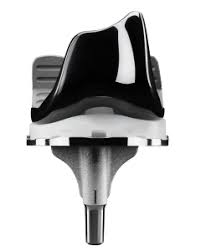Smith & Nephew warns on first-gen Journey BCS knee revision rate (MassDevice)
Smith & Nephew (NYSE:SNN) recently released an urgent field safety notice warning of issues with components in the first generation of its Journey BCS knee system that can lead to a higher rate of revisions than expected.
The notice, originally sent in June, warned that post-market surveillance data showed that patients implanted with the first gen Journey BCS knee “may have a higher risk of requiring a revision earlier than they or their surgeon had expected,” though it said that the reason for the revisions was the same as for other primary total knee systems.
Data from the study indicated a revision rate 1.5 times greater than the average total knee arthroplasty device revision rate as reported by the National Joint Registry of England, Wales and Northern Ireland and the Australian Orthopedic Association National Joint Replacement Registry, Smith & Nephew said.
In response to the data, Smith & Nephew issued a field safety corrective action to regions where the first generation Journey BCS knee was used, advising individuals to phase out first gen components and warning of the higher revision rate.
Smith & Nephew suggested that physicians should continue routine follow-ups for patients with the first generation Journey BCS knee, and said that signs and symptoms for revision would be no different than with other knee implant devices.
The U.K.’s national health service advised against the implantations with the device, and suggested physicians monitor patients with the implant for the first five years post implantations and then every two years to ten years post-implant, and that they report any adverse events.
Smith & Nephew said that the issues do not affect the Journey II BCS system.
In May, Smith & Nephew cut its outlook for the rest of the year after reporting “weaker” first-quarter results, sending share prices down in London and New York.
